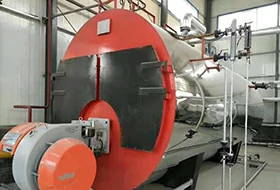
Oct . 13, 2024 04:12 Back to list
thermal oil boiling point
Understanding the Boiling Point of Thermal Oil
Thermal oil, also known as heat transfer fluid (HTF), is a specialized type of fluid used in various industrial applications for transferring heat efficiently. One critical property of thermal oil that significantly impacts its performance is its boiling point. The boiling point is the temperature at which the fluid changes from liquid to vapor, and this property is crucial for the effective operation of thermal systems.
Importance of Boiling Point
The boiling point of thermal oil determines the maximum operating temperature of thermal systems. Selecting a thermal oil with an appropriate boiling point is essential for ensuring that the system operates efficiently and safely. If the temperature exceeds the boiling point, the fluid will begin to vaporize, leading to decreased heat transfer efficiency and potential system failures. Moreover, vaporized thermal oil can lead to pressure buildup, creating safety hazards within the system.
Characteristics of Thermal Oil
Thermal oils are engineered to have high boiling points, allowing them to operate at elevated temperatures without vaporization. For instance, many synthetic thermal oils can have boiling points exceeding 300°C (572°F), while some specialized formulations can reach boiling points of over 400°C (752°F). This high thermal stability enables these oils to be used in various applications, including chemical processing, food production, and energy generation.
The boiling point of thermal oil can be influenced by several factors, including the composition of the oil, its pressure, and the presence of any additives. It is essential to select thermal oils that not only meet temperature requirements but also possess other properties such as low viscosity, good thermal conductivity, and resistance to oxidation.
Factors Influencing Boiler Efficiency
thermal oil boiling point

In addition to the boiling point, the efficiency of thermal oil systems can be impacted by several other factors. These include
1. Heat Transfer Efficiency The ability of thermal oil to transfer heat effectively is influenced by its thermal conductivity. Oils with higher thermal conductivity can transfer heat more efficiently, which is essential for maintaining optimal system performance.
2. Degradation and Oxidation Over time, exposure to high temperatures can cause thermal oils to degrade and oxidize, leading to the formation of sludge and deposits. Using high-quality oils with additives that resist oxidation can prolong the life of the fluid and the system.
3. Viscosity The viscosity of thermal oil can change with temperature. At lower temperatures, the oil may become too viscous, impairing flow and heat transfer. Conversely, if the oil thins out too much at high temperatures, it may not provide adequate lubrication for pumps and other components.
Applications of Thermal Oil
Due to their desirable boiling points and thermal properties, thermal oils find applications in numerous industries. In the petrochemical industry, thermal oil is used in reactors and heat exchangers. In the food industry, it serves as the heating medium in processes such as frying and cooking. Additionally, thermal oils are extensively utilized in solar thermal power plants, where they absorb solar energy and transfer it to a heat exchanger to generate steam for electricity production.
Conclusion
In summary, the boiling point of thermal oil plays a pivotal role in the efficiency and safety of thermal systems. Selecting a high-quality thermal oil with an appropriate boiling point is essential to ensure optimal performance in various applications. As industries continue to prioritize energy efficiency and safety, understanding the properties of thermal oil, including its boiling point, will become even more critical. By choosing the right thermal oil and managing its operating conditions, businesses can enhance productivity while minimizing the risk of equipment failures.
-
High-Efficiency Commercial Oil Fired Steam Boiler for Industry
NewsJul.30,2025
-
High-Efficiency Biomass Fired Thermal Oil Boiler Solutions
NewsJul.30,2025
-
High Efficiency Gas Fired Thermal Oil Boiler for Industrial Heating
NewsJul.29,2025
-
High-Efficiency Gas Fired Hot Water Boiler for Sale – Reliable & Affordable
NewsJul.29,2025
-
High Efficiency Biomass Fired Hot Water Boiler for Industrial and Commercial Use
NewsJul.29,2025
-
High-Efficiency Biomass Fired Hot Water Boiler for Industrial Use
NewsJul.28,2025
Related PRODUCTS






















